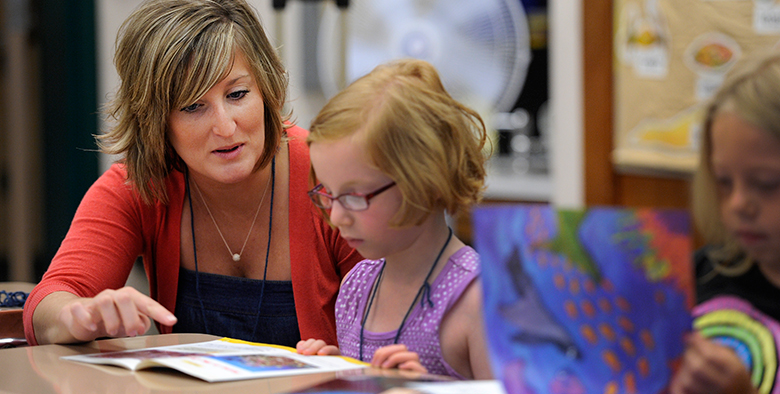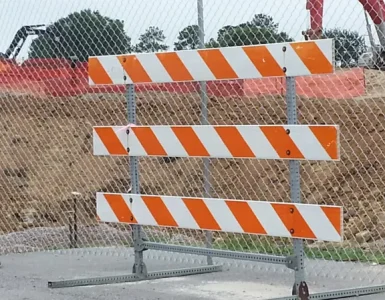A bill to require teachers to be proficient in instruction of early childhood literacy and intervention for pupils with reading deficiencies is moving forward at the state Legislature.
The bill, Senate Bill 1572, would establish a literacy instruction exam for teacher certification applicants, create an assessment for Kindergarten entry, and require proficiency in instruction and intervention for students with reading deficiencies, including students with dyslexia characteristics.
Reaching out to children at the earliest age possible is key to improving Arizona reading scores and students’ outcomes in life, said Senate Education Committee members who voted 7-0 in favor of the bill.
“This was a labor of love,” the sponsor of the bill and the vice chair of the committee, Senator T.J. Shope, R-Coolidge, said at the hearing.

The measure is seeing strong support from education, business and community groups including the State Board of Education, Helios Foundation, Arizona Education Association, Greater Phoenix Leadership, and Arizona Chamber of Commerce & Industry.
All applicants for certification or recertification affected
The bill would require applicants for a teaching certificate to pass a literacy instruction assessment starting Aug. 1, 2022. According to the bill, applicants and reapplicants would be assessed on their proficiency to:
- Teach foundational reading skills, phonemic awareness, phonics, fluency, vocabulary and comprehension
- Implement reading instruction using high-quality instructional materials
- Provide effective instruction and interventions for students with reading deficiencies, including students with characteristics of dyslexia
Education requirements
The bill also includes training requirements for all certification applicants for common school instruction including the completion of at least 45 classroom hours or 3 college-level credit hours, or the equivalent, in systematic phonics instruction and reading instruction.
Parent notification
Beginning in the 2022-2023, the bill calls for a statewide kindergarten entry evaluation tool.
If a reading deficiency is identified during the evaluation, or any time during the school year, the parent would receive written notification. Parents, teachers and school staff would then develop a reading improvement plan.
Interventions for students with dyslexia
While reading instruction is important for all young children, it’s critical for students who have dyslexia characteristics, said Courtney Gilstrap LeVinus, a Phoenix resident and a board member of the International Dyslexia Association.

Research backs that up with hard data, she said. About 95 percent of students with dyslexia who receive interventions in first grade will continue to advance at grade level, according to the National Institutes of Health (NIH). If dyslexia intervention is delayed until fourth grade, it takes four times as long to improve the same skills, research shows.
Approximately 325,000 students in Arizona have dyslexia or a reading related disability, according to the NIH.
Teacher preparation in reading science proves effective
Research is proving that a growing movement in teacher preparation in reading science is growing and having an impact.
New research by the National Council on Teacher Quality, which began publishing program ratings in 2013, found that the number of programs in the nation to embrace reading science has crossed the halfway mark, with 51 percent of 1,000 evaluated traditional elementary teacher preparation programs across the country now earning an A or B grade for their coverage of the key components of the science of reading, up from 35 percent from seven years ago.
Governor’s push for students to catch up on lost classroom hours
If approved, SB 1572 will join other education measures on Gov. Doug Ducey’s desk that promote early literacy for Arizona children to improve reading scores and help students most impacted by learning loss during the pandemic.
McKinsey & Company estimates that in Fall 2020, students on average started the school about a month and a half behind where they were expected to be in reading.
Earlier this year, the governor vowed to commit $6.9 million to advance early literacy learning and instruction including deploying literacy coaches to the lowest performing PK-3 schools, hiring dyslexia and early literacy specialists, and providing literacy education training to Arizona educators.
State to analyze where learning loss most significant
This week, Gov. Ducey also signed an executive order directing the State Board of Education to study student assessment data and identify the learning loss that occurred so students and families can get the support they need.
The issuance of the order followed Ducy’s signing of House Bill 2402, which ensures students continue to be evaluated and provides flexibility around the state’s A-F school grading system.
“This will ensure we continue to have accountability in our education system, so parents can make the best educational choice for their kids,” the governor said in a signing letter.
“After all, these are our future leaders and it is incumbent upon us that we ensure they are prepared for success,” he added. “Any future attempts to suspend this grading system will necessitate a much greater level of justification.”To read the order, go to: Governor’s Executive Order.















Add comment